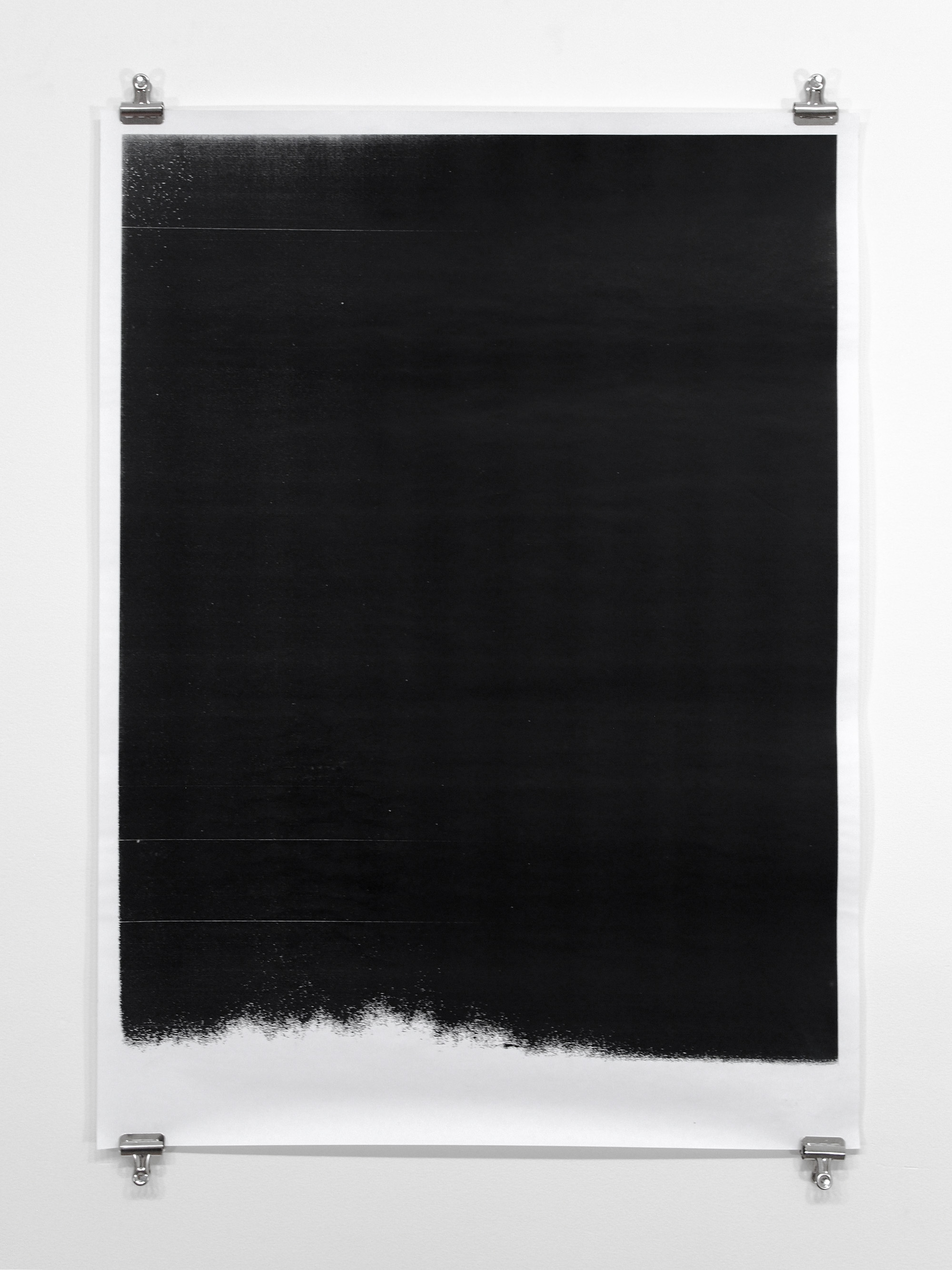Walden Blackout
Walden Blackout is a page from Henry David Thoreau's Walden, photocopied over and over until the entire text is illegible. The first time I read Walden, I thought that Thoreau's exciting-yet-boring, humble-yet-overblown text was a wonderful handbook for individuality. Revisiting the book later in life, I realized that there's no such thing. So, the challenge of reading Walden is to engage with it without regarding it as authoritative. For me, incorporating it into my work was my response.
For some time, I have been interested in the semiotics of the photocopy. When a text is reproduced in this way, language is turned into an image, a sign, which validates its meaning to the reader by carrying the semiotic authority of truth and accuracy along with the intended meaning of the text. Walden Blackout is this idea taken to its conclusion. The whole page is rendered illegible, creating tension between text and image, between Walden as object and the impassive surface of Walden Blackout as its icon.
I also think that Walden Blackout can be interpreted as anti-Thoreauvian, a triumph of consumerism over a lone voice in the woods. There is contradiction inherent in the massive scale on which Walden is distributed and consumed each year on college campuses. Does Thoreau's message of self-reliance and self-discovery lose meaning through mass dissemination? Or does Walden become an even more important manual for self-preservation in a conforming world?

Walden Blackout
2011
Photocopy
21 1/4 x 29 in.
Ed. 3